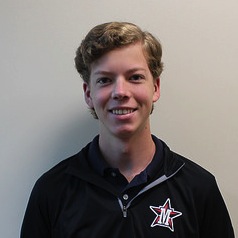Trice’s interest in government germinates at Seeds of Peace

Junior Madison Trice met students from across the globe while attending the summer program Seeds of Peace this summer.
September 15, 2014
This summer, junior Madison Trice attended the Seeds of Peace program to learn about the Israeli-Palestinian conflict and understand both sides.
Located on a lake in the backwoods of Maine, Seeds of Peace is a place where people from opposing sides of war zones come face to face in an effort to reconcile their differences and better understand those whom they are fighting against.
“It’s really just like a regular camp, but it brings together kids from Israel, Palestine, and beyond,” Trice said.
Seeds of Peace was founded in 1993 for people from Israel and Palestine to converse about the tensions in the Middle East. Since then, the three-week program has grown to include participants from the contested areas of India and Pakistan.
“Delegates from Egypt and Jordan, as well as from the South Asian conflict, come to represent their nations in Maine,” Trice said.
In addition to 110 minutes of discussion per day concerning their struggles, participants engage in a number of recreational activities, from water skiing to hiking and surfing.
“The goal is not so much to persuade other people of your beliefs, but rather to understand the other side a little bit better,” Trice said.
Campers came from all over the world. Twenty-four delegates were from the United States, as well as 40 from Israel, 40 from Palestine, and many more from India and Pakistan.
“The discussions can become a little bit heated, and people go back and forth a lot,” Trice said. “After a while together, you get really close, and you begin to understand different views.”
Delegates discussed the legitimacy of the Israeli state, as well as the importance of a one- or two-state solution to the conflict.
“You kind of understand that one person’s family might have brothers, sisters and family that serve in the army, and the other person’s family might have been killed by the same army,” Trice said.
Seeds of Peace runs similar programs for Maine residents, where they discuss racial tensions and social problems facing the state.
“I feel like I came back with a view that peace is definitely possible,” Trice said. “It’s just a question of how to get there.”




